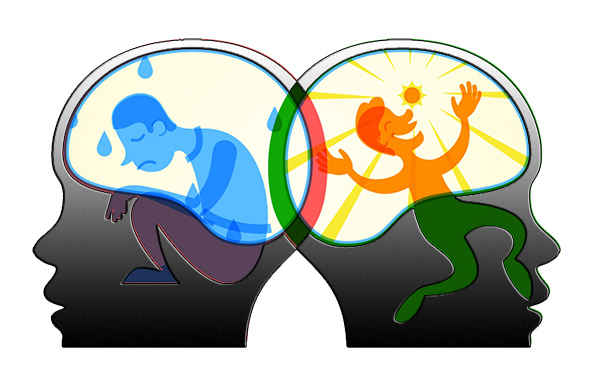Why am i such a loser? Why Do I Feel Like a “Loser”?
It’s essential to recognize that feelings of inadequacy and self-criticism are common, and many people experience these thoughts at various points in their lives. However, labeling yourself as a “loser” can be detrimental and counterproductive.
Instead of focusing on self-criticism, let’s explore some common reasons why people might feel this way and provide constructive steps to address these feelings.

Common Reasons for Feeling Like a “Loser”
- Comparing Yourself to Others
- Description: Constantly measuring your achievements against others can lead to feelings of inadequacy.
- Examples: Observing friends succeed in their careers, relationships, or personal goals while you feel stuck.
- Additional Information: Social comparison theory suggests that comparing ourselves to others can significantly impact our self-esteem, especially in an age where social media highlights the best parts of people’s lives. Social media often presents a curated version of reality, leading to skewed perceptions of others’ lives.
- Unrealistic Expectations
- Description: Setting unattainable goals can set you up for failure.
- Examples: Expecting to master a new skill overnight or assuming you should have the perfect job right out of college.
- Additional Information: Perfectionism can drive unrealistic expectations, leading to a cycle of setting impossible standards and feeling like a failure when they aren’t met. Understanding that growth and success take time can help set more achievable goals.
- Lack of Accomplishments
- Description: Feeling like you haven’t achieved significant milestones can impact self-esteem.
- Examples: Not having a high-paying job, not owning a house, or not being in a stable relationship.
- Additional Information: Societal pressure and cultural norms often dictate what accomplishments should look like, which can vary widely and may not reflect personal values. It’s important to define success on your terms.
- Social Isolation
- Description: Limited social interactions can lead to loneliness and negative self-perception.
- Examples: Not having a close group of friends or feeling left out of social activities.
- Additional Information: Loneliness has been linked to various mental health issues, including depression and anxiety, further reinforcing negative self-perception. Building a social network and engaging in community activities can mitigate feelings of isolation.
- Negative Self-Talk
- Description: Harsh self-criticism can reinforce feelings of worthlessness.
- Examples: Constantly thinking “I’m not good enough” or “I’ll never succeed.”
- Additional Information: Cognitive-behavioral therapy (CBT) techniques can help challenge and change negative thought patterns. Practicing positive affirmations and reframing negative thoughts can improve self-esteem.
- Mental Health Issues
- Description: Conditions like depression or anxiety can distort your self-view.
- Examples: Feeling persistently sad, anxious, or hopeless.
- Additional Information: Seeking professional help can provide strategies and support to manage mental health conditions effectively. Therapy, medication, and lifestyle changes can all play a role in improving mental health.
Constructive Steps to Address These Feelings

- Practice Self-Compassion
- Action: Treat yourself with the same kindness and understanding you would offer a friend.
- Example: When you make a mistake, remind yourself that everyone makes mistakes and that it’s part of being human.
- Additional Tips: Mindfulness and self-compassion exercises can be effective. Practicing gratitude can also shift focus from shortcomings to positive aspects of life. Techniques like loving-kindness meditation can help foster self-compassion.
- Set Realistic Goals
- Action: Break down large goals into smaller, manageable steps.
- Example: Instead of aiming to be fluent in a new language in a month, set a goal to learn a few new words each day.
- Additional Tips: Use SMART goals (Specific, Measurable, Achievable, Relevant, Time-bound) to make objectives more attainable. Celebrating small milestones along the way can boost motivation.
- Celebrate Small Wins
- Action: Recognize and celebrate your achievements, no matter how small.
- Example: Finished a book? Treat yourself to something you enjoy.
- Additional Tips: Keeping a journal of daily accomplishments can help track progress and boost morale. Reflecting on these achievements can reinforce a positive self-image.
- Limit Comparisons
- Action: Focus on your own progress rather than comparing yourself to others.
- Example: Reflect on where you were a year ago and the progress you’ve made since then.
- Additional Tips: Reducing time spent on social media or curating your feed to include positive and inspiring content can help. Unfollowing accounts that trigger negative comparisons can also be beneficial.
- Seek Support
- Action: Reach out to friends, family, or a therapist for support.
- Example: Joining a support group or talking to a mental health professional can provide perspective and encouragement.
- Additional Tips: Building a support network can offer emotional reinforcement and practical advice. Engaging in group activities or therapy can foster a sense of community and shared understanding.
- Engage in Activities You Enjoy
- Action: Spend time doing things that bring you joy and satisfaction.
- Example: Pick up a hobby like painting, playing a sport, or reading.
- Additional Tips: Regularly engaging in activities that make you happy can improve overall well-being and self-esteem. Volunteering or pursuing new interests can also provide a sense of purpose and fulfillment.
Interesting Information

- The Psychology of Self-Worth
Insight: Self-worth is influenced by various factors, including upbringing, societal standards, and personal experiences. Understanding these influences can help reshape a more positive self-image.
Additional Information: Early childhood experiences and attachment styles can significantly impact self-worth in adulthood. Exploring these roots in therapy can be beneficial for developing a healthier self-view.
- The Role of Social Media
Insight: Studies have shown that social media can exacerbate feelings of inadequacy due to the curated nature of people’s posts. Being mindful of your social media use can help mitigate these effects.
Additional Information: Social media detoxes and digital well-being tools can help manage and reduce the negative impact of social media. Setting time limits and engaging in face-to-face interactions can also improve mental health.
- Growth Mindset
Insight: Embracing a growth mindset—the belief that abilities and intelligence can be developed—can lead to greater resilience and a more positive self-view.
Additional Information: Carol Dweck’s research on growth mindset highlights the importance of viewing challenges as opportunities for growth rather than obstacles. Implementing a growth mindset in education and personal development can foster lifelong learning and adaptability.
News and Current Developments

- Mental Health Awareness
News: Increased awareness and advocacy for mental health are leading to more resources and support for those struggling with feelings of inadequacy.
Example: Many companies are now offering mental health days and resources for their employees.
Additional Information: Mental health apps and online therapy platforms are becoming more popular, providing accessible support for many people.
- Social Media Trends
News: Platforms like Instagram and Facebook are introducing features to reduce social comparison, example: hiding “likes” to promote mental well-being.
Example: Instagram’s trial of hidden likes aims to reduce pressure and competition among users.
Additional Information: New social media platforms are emerging with a focus on authenticity and real-life connections, challenging the traditional highlight-reel format.
- Workplace Well-Being Initiatives
News: Employers are increasingly recognizing the importance of mental health and well-being, implementing programs to support employees’ psychological health.
Example: Companies are providing access to therapy, mindfulness programs, and stress management workshops.
Additional Information: Flexible work arrangements and mental health training for managers are also being introduced to create a more supportive work environment.
Remember, everyone’s journey is unique, and feeling down at times is a normal part of life. Focusing on personal growth, seeking support, and practicing self-compassion can help you build a healthier self-image and lead to a more fulfilling life. Embracing the steps and insights provided can pave the way for a more positive and resilient mindset.












